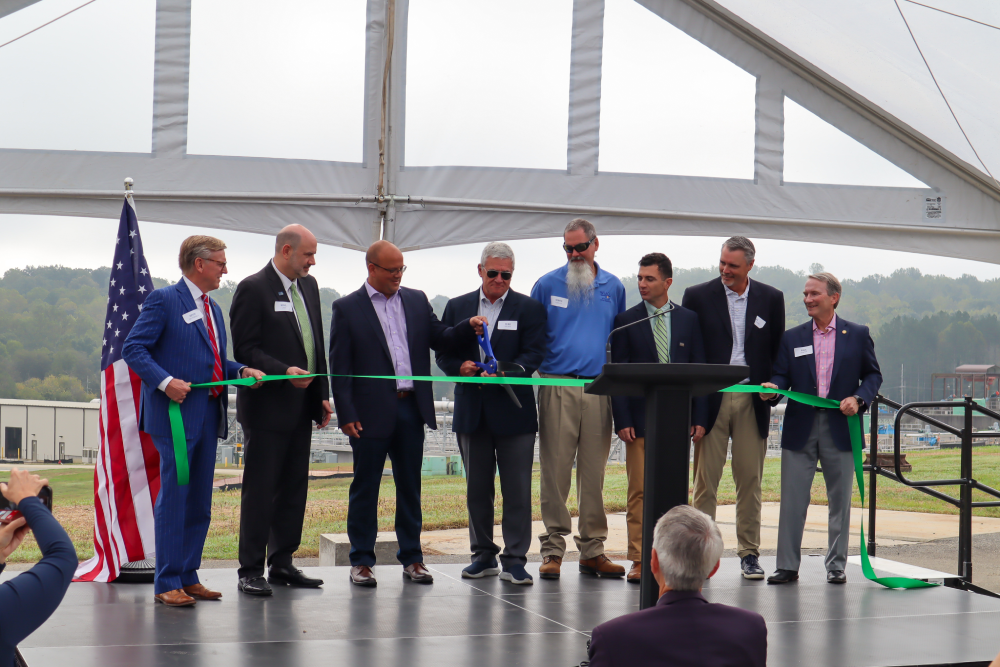
WSACC Celebrates Completion of Rocky River Wastewater Treatment Plant Expansion to Support Cabarrus County Growth
The Water and Sewer Authority of Cabarrus County (WSACC) marked a major milestone with a ribbon-cutting ceremony to celebrate the completion of Phase 3 of the Rocky River Regional Wastewater Treatment Plant expansion on October 3, 2024.
This crucial project, increasing the plant’s capacity from 26.5 million gallons per day (MGD) to 30 MGD, is set to bolster the region’s infrastructure, supporting its growing residential, commercial, and industrial needs.
The ribbon-cutting event was attended by more than 75 staff members, elected officials, WSACC board members, and key stakeholders, including representatives from Crowder Construction and Brown & Caldwell Engineering, the companies responsible for the successful completion of the project.
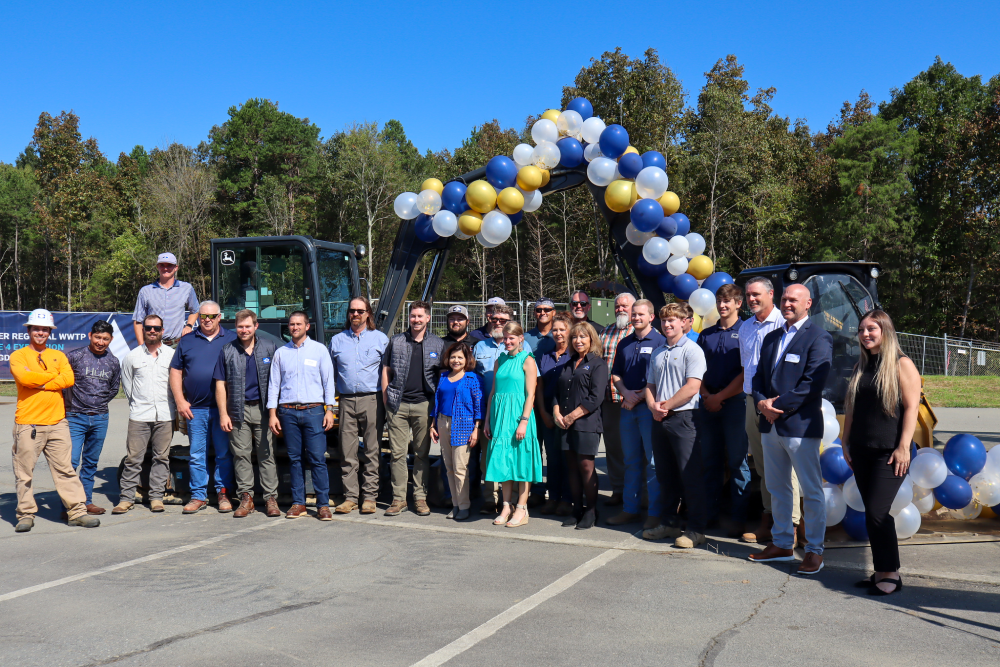
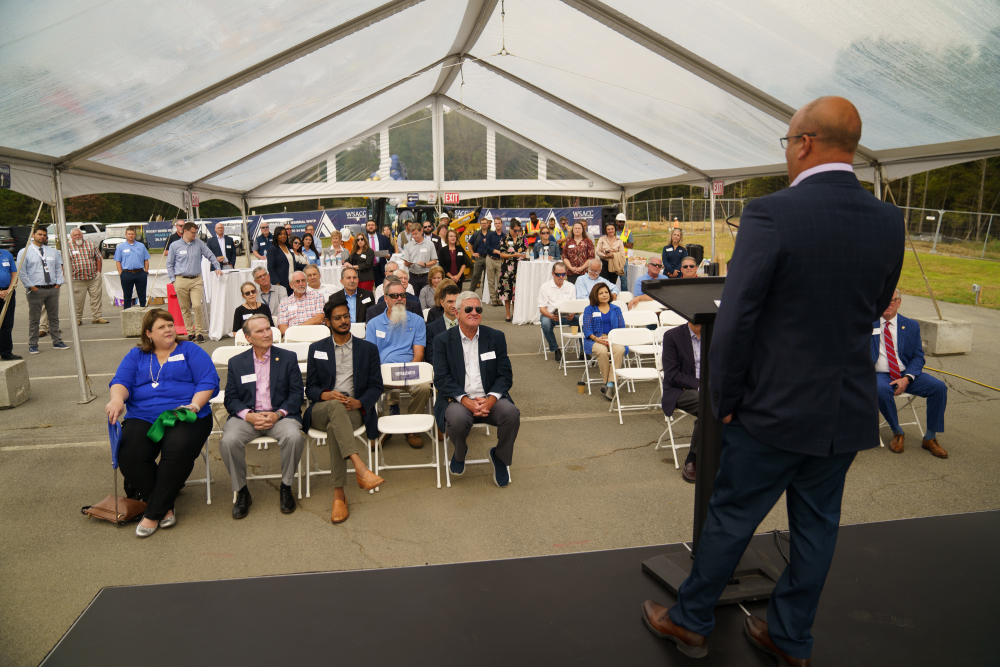
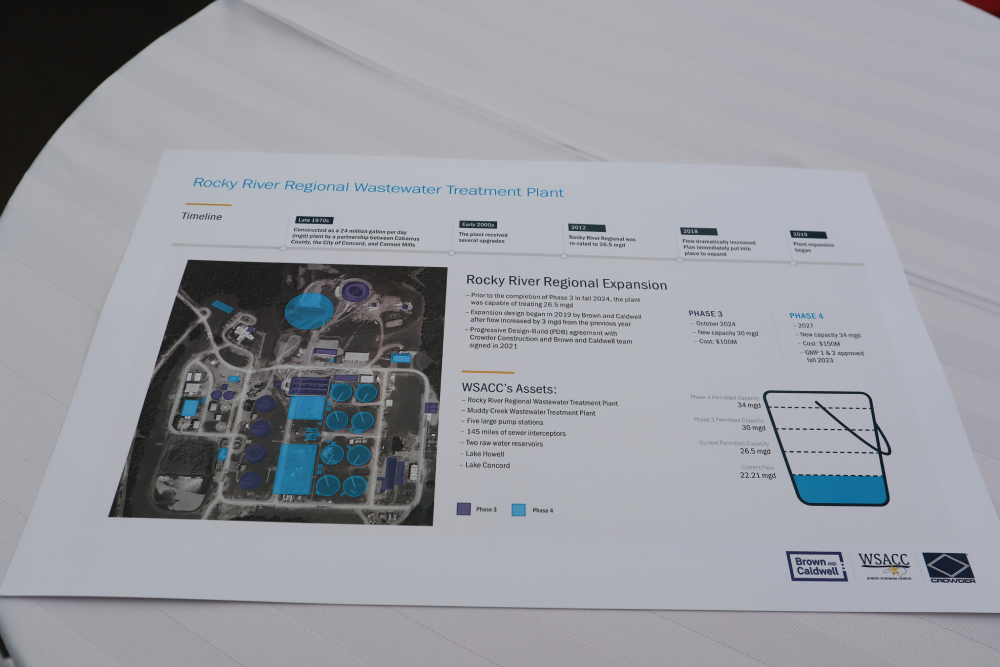
Photos: Courtesy of Water and Sewer Authority of Cabarrus County
Expansion Boosts Regional Growth
Chad VonCannon, Executive Director of WSACC, kicked off the ceremony by emphasizing the teamwork that made the expansion possible. “This project is on time and under budget,” VonCannon said, a notable achievement in an era where many projects face delays and rising costs due to post-COVID challenges. VonCannon attributed the project’s success to strong collaboration between WSACC’s board, contractors, engineering consultants, and local government officials.
“This expansion is a perfect example of what can be achieved when everyone is aligned and working towards the same goal,” VonCannon remarked. “We’re ensuring that Cabarrus County has the infrastructure it needs to continue thriving.”
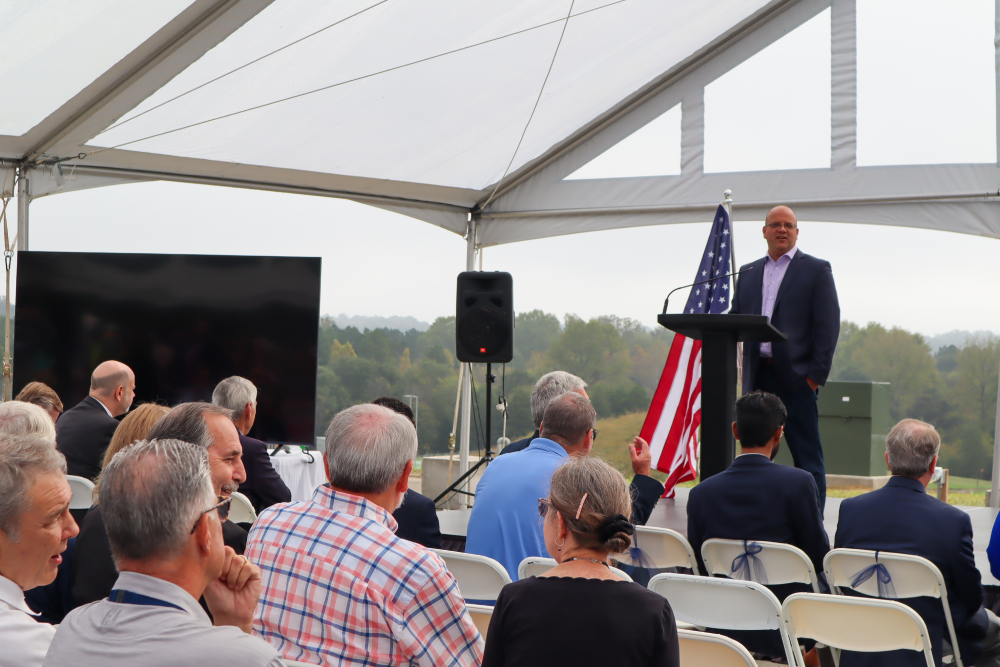
This enhanced wastewater treatment capacity comes at a pivotal time, as Cabarrus County experiences rapid population and business growth. With the increased capacity, the region can better accommodate new industries, housing developments, and commercial investments, all while maintaining a sustainable and efficient wastewater management system.
Strategic Partnerships and Proactive Planning
The expansion project was a collaborative effort, with essential contributions from the North Carolina Department of Environmental Quality (DEQ). Shrikar Nunna, the DEQ’s Director of Legislative Affairs, praised WSACC’s proactive approach to infrastructure planning, which ensures that growth in the area is matched with the necessary water and wastewater capabilities.
“We’ve had a great partnership with WSACC,” said Nunna. “Their forward-thinking planning is crucial for sustaining the economic growth we’re seeing in North Carolina. Without proper infrastructure, this growth would not be possible.”
Local leaders also underscored the importance of this expansion for the region’s long-term economic development. Kannapolis City Manager and WSACC board chair Mike Legg explained how vital the project is for local municipalities.
“This expansion is not just about wastewater treatment capacity—it’s about driving our local economy. It helps attract private sector investments, create jobs, and ensure that we have resilient infrastructure to support future growth.”
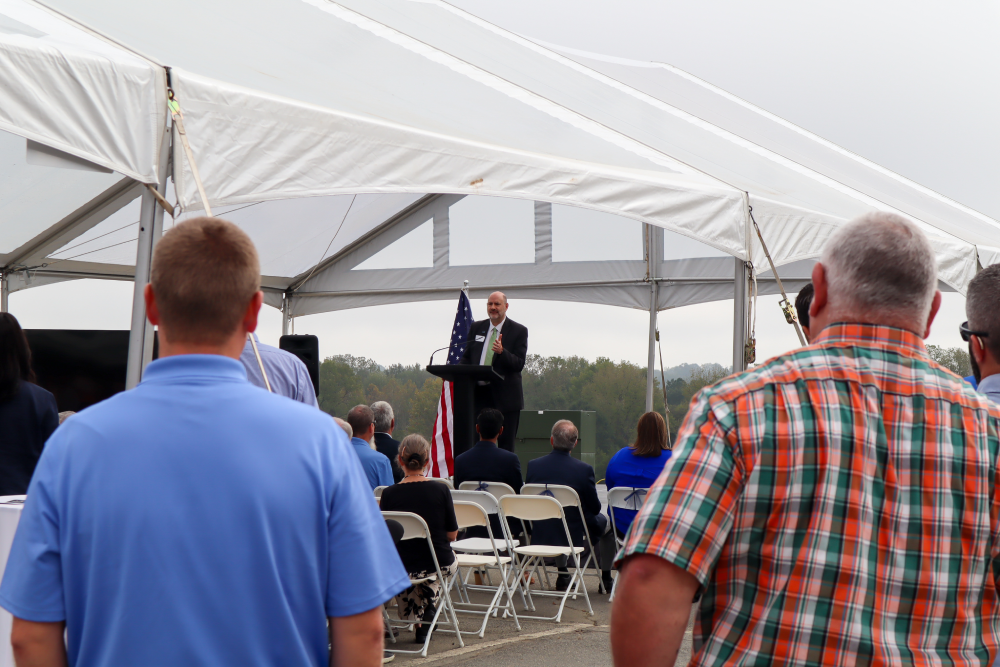
The Role of State Support
Senator Paul Newton, a strong advocate for securing state funding for WSACC’s wastewater projects, spoke at the event, highlighting the role of infrastructure in sustaining the region’s economic prosperity. “Cabarrus County is a place where people can build a full life—get a great education, find good jobs, and access quality healthcare. To continue providing those opportunities, we need to invest in essential services like wastewater treatment,” Newton said. “Smart growth relies on having the infrastructure in place to support it.”
The senator’s remarks also acknowledged the importance of the regulatory reforms and funding efforts that have been crucial to advancing WSACC’s expansion projects, including the current Phase 3 completion and the upcoming Phase 4.
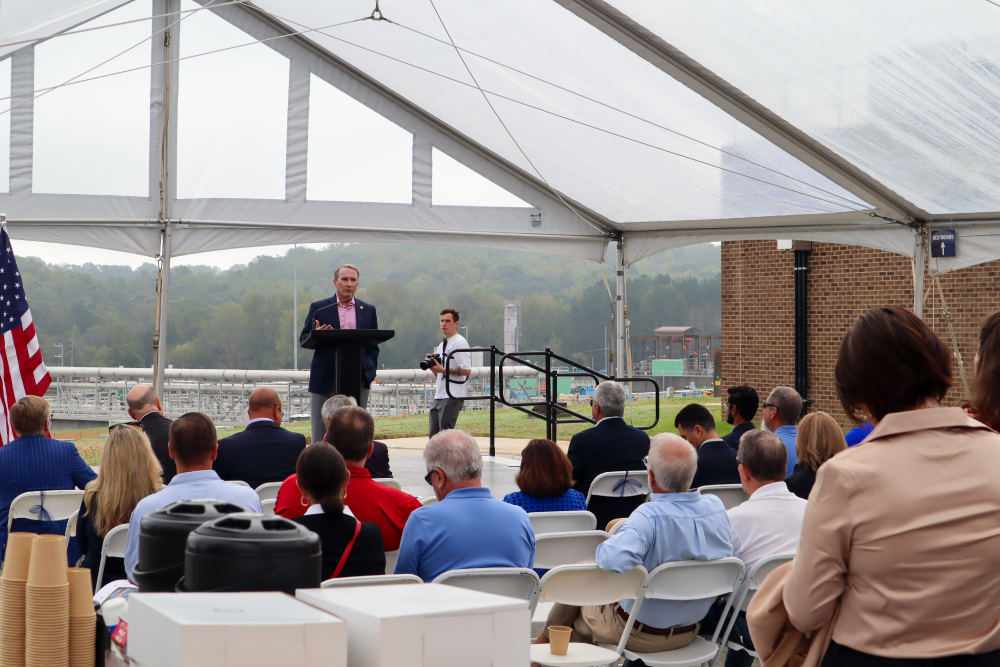
A Look Ahead to Future Expansions
The successful completion of Phase 3 adds 3.5 MGD of capacity to the Rocky River Regional Wastewater Treatment Plant, positioning the facility to handle increased demand in the short term. However, WSACC’s long-term planning is already well underway, with Phase 4 of the plant’s expansion in progress.
Phase 4 will add an additional 4 MGD, bringing the total capacity to 34 MGD when it comes online in 2027. This future capacity increase will further ensure that Cabarrus County is prepared to meet the demands of continued population and industrial growth.
After the ribbon-cutting ceremony, attendees were invited to take a golf cart tour of the expanded plant. This tour provided an up-close view of the newly completed facilities, as well as areas under construction as part of the ongoing Phase 4 project.
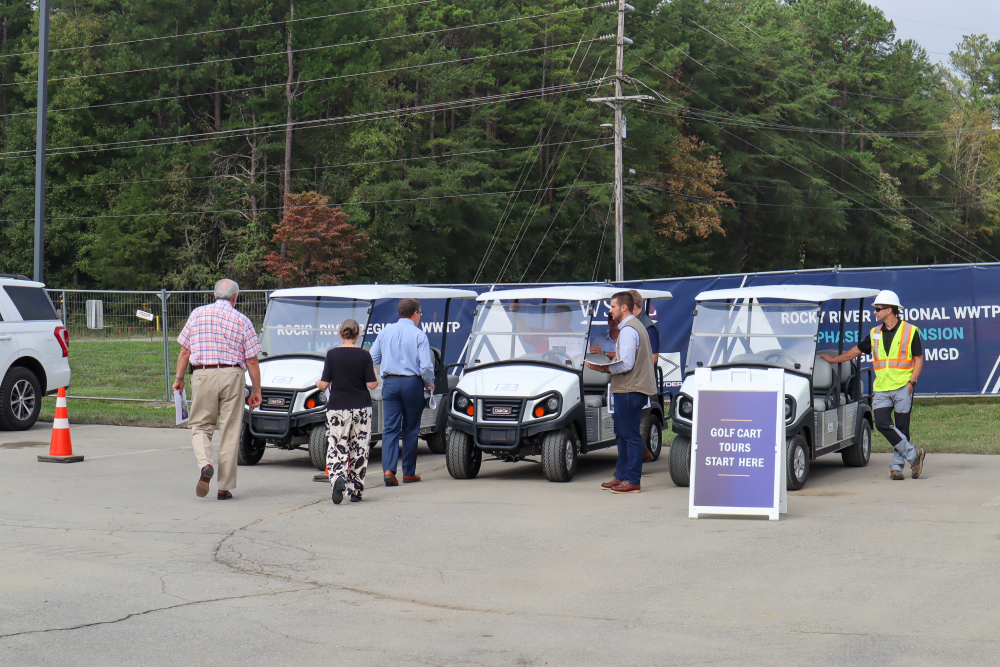
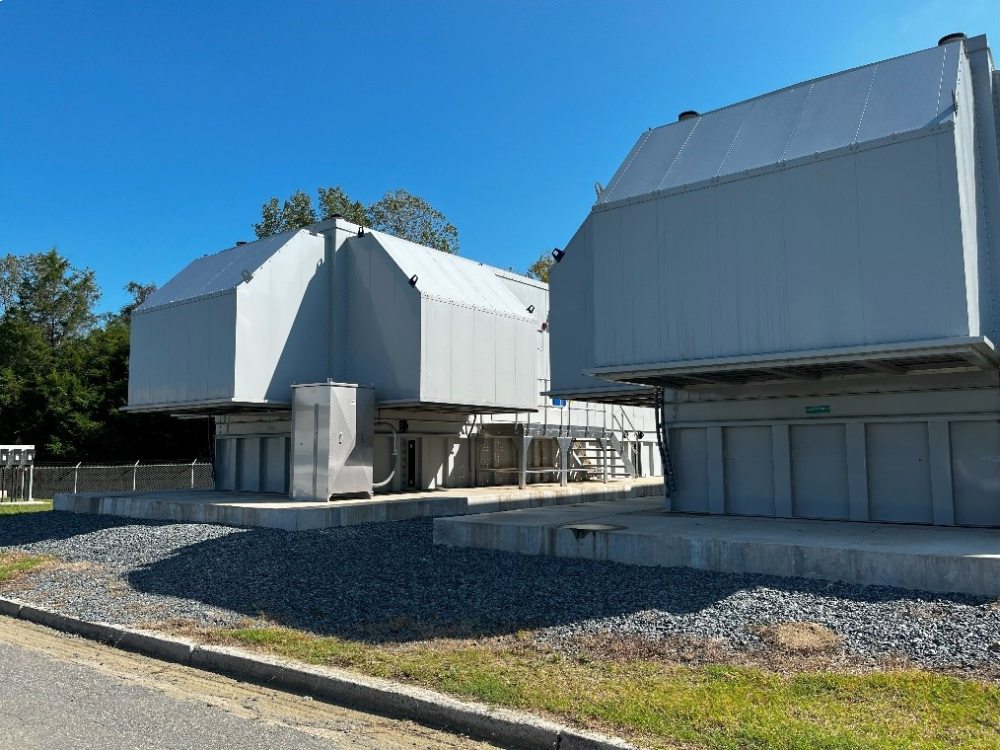
WSACC’s Vital Role in Cabarrus County
The Water and Sewer Authority of Cabarrus County plays a critical role in maintaining and expanding the region’s water and wastewater infrastructure. As an independent public body funded entirely by user fees, WSACC is responsible for planning, managing, and maintaining water and sewer services across Cabarrus County. The Authority also provides wholesale wastewater transportation and treatment to its organizing jurisdictions, ensuring that essential services keep pace with the region’s growth.
The completion of Phase 3 is a major achievement for WSACC, illustrating its commitment to delivering high-quality infrastructure solutions that support both current and future development needs in the county.


To learn more about WSACC’s projects and services, visit its website.